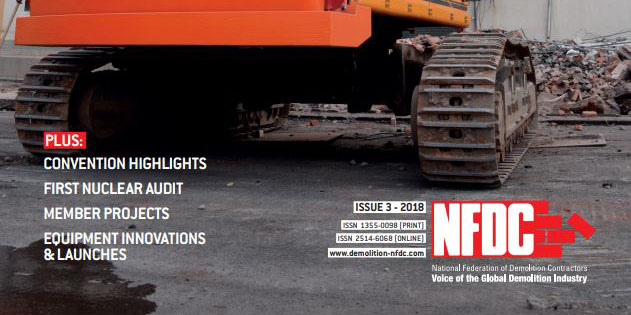How the introduction of restricted working hours is affecting the overall productivity of your business.

Have you been affected by working hours?
As you’ll be familiar with, the hours during which construction sites are allowed to operate is determined by the local authority through their Codes of Practice (CoP), written in accordance with the Control of Pollution Act 1974 (sections 60 and 61). However, quite often it appears that not all councils have the resources to write their own CoP’s and so will adopt the practice of another.
In London for example, since the Royal Borough of Kensington and Chelsea rewrote their Code of Practice in 2016, stating that no noise can be produced on a Saturday that travels further than the site boundary we have seen a snowballing effect. Several other local authorities in Greater London including Westminster and the City of London also adopted similar policies. The issue is not just affecting London with many other local councils across the UK adopting similar practices. And herein lies the problem……
As we know there are not many quiet demolition activities and even when we can find innovations and tasks that are not noise polluting it seems that Clients are opting not to take the risk of receiving complaints from residents and other stakeholders or indeed the potential fines that could be imposed by the Environment Agency. So, it is safe to say that a 5-day working week on many major projects is becoming the norm.
We can argue that pragmatically for the business these restrictions can be planned for and additional time and resources allocated during the tendering process. However, have you considered what it means for your most important asset – your people?
If we look at it from the simplistic point of view, it means your projects working week is reduced from six days to five and should mean that your Saturday mornings are no longer disturbed. However, if we look at it by putting on a different hat, and in this case the hard one, what then is the overall impact? By using the simple rules for standard time and over time this means a potential loss of earnings of up to 22%!
This reduction will be insurmountable for a number of employees who may already be under significant financial strain. Research conducted by the Financial Conduct Authority’s – Financial Lives Survey 2017 found that 11.8 million adults (23%) faced with an unexpected £300 bill would have to borrow or could not afford to pay it. Additionally, the reported highlighted that half of UK consumers (25.6 million people) showed one or more characteristics of potential financial vulnerability and this is before the potential loss of earnings.
Consider, for a moment, how you would feel if your earnings were reduced by 22%.
Would it impact on your ability to engage in normal day-to-day tasks? Would it affect your spending power? As more and more local authorities amend their polices and restrict Saturday working, more and more of your people will feel under greater financial pressure.
Recently the Chartered Institute of Personal Development (CIPD) reported that poor financial wellbeing can seriously impact individual’s health in terms of:
- poor psychological wellbeing,
- higher stress and anxiety levels and,
- lower levels of good health.
In turn, this affects productivity in terms of:
- poorer job performance,
- short-term decision-making,
- reduced ability to concentrate,
- lower productivity and,
- higher levels of absenteeism and presenteeism.
The CIPD also stated that:
- one in four workers report that money worries have affected their ability to do their job,
- one in ten say they have found it hard to concentrate or make decisions at work because of money worries and,
- 19% have lost sleep worrying about money,
All of which have an obvious impact on productivity and therefore the company’s bottom line.
In a recent stress awareness and prevention session we delivered to a demolition team, on a project that has been affected by these restrictions to working hours, the message was very clear. They reported that that the most cause of stress was from financial worries as a direct result of the loss of earnings from the Saturday shift.
So, in summary its safe to say that, in addition to Emotional Resilience, Financial Resilience needs to be on our agenda. We need to shout a little louder and we need to strike a balance. Afterall this week’s latest construction industry statistics make for continued terrifying reading including the quote from Building Mental Health below.
‘Every working day, two construction workers take their own life. We have to educate everyone in our industry to recognise the signs and symptoms of our colleagues that are suffering from stress, anxiety or depression and start the conversation to assist in their recovery. Please join us now, our work is just beginning.’
This is a call to action, the time is now.
Dave Price,
Managing Director, Vector Equilibrium
